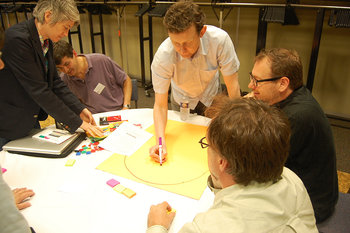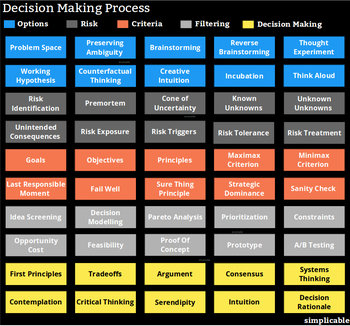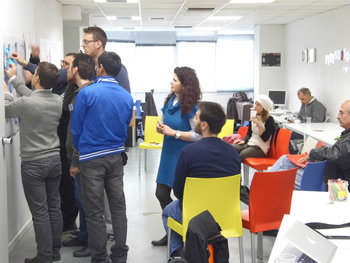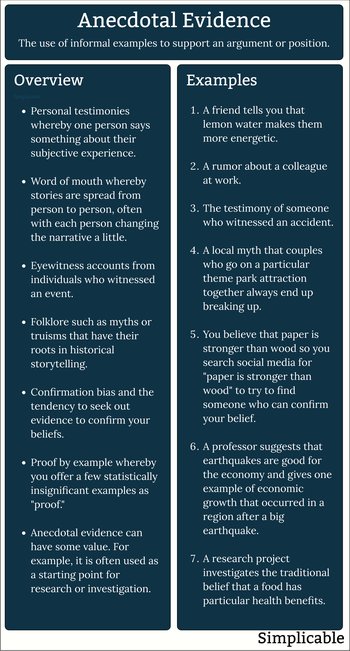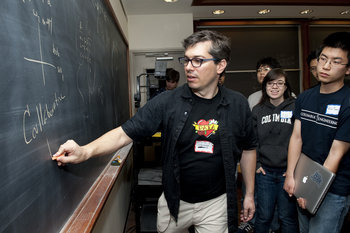
Basic Logic
The basic purpose of logic is to deduce conclusions from what you know, a process known as inference, and to detect invalid logic, known as fallacies.Inference
Inference is the logic of developing true statements from lists of other true statements. It's a natural part of human thinking that's also used by artificial intelligence.Fallacies
The identification of flaws in logic, known as fallacies. Logical thought requires knowledge of common fallacies and known invalid solutions to a particular problem space.Directions of Logic
Inference has several types that include abductive reasoning, inductive reasoning and backward induction. These equate to directions of problem solving such as top-down and bottom-up approaches.Inductive Reasoning
Inductive reasoning is a type of bottom-up logic that proposes theories based on sets of observations.Abductive Reasoning
Abductive reasoning is a type of bottom-up logic that allows for best guesses. It is typically used in the context of significant uncertainty.Backward Induction
A process of reasoning backwards starting with potential conclusions and evaluating the paths that lead to each conclusion. This tends to be a lot of work and usually requires computational support. Backward Induction is a common way to implement artificial intelligence such as computer chess.Certainty of Logic
Methods of logical problem solving differ in terms of certainty. The methods abductive reasoning, inductive reasoning and backward induction all allow for likely but uncertain conclusions. Other methods, such as deductive reasoning only generate conclusions that can be shown to be logically certain.Deductive Reasoning
The process of proving a theory using formal logic that guarantees logical certainty. Starts with the theory and seeks supporting observations in a top-down direction.Informal Logic
Informal logic represents logical arguments in a natural language such as English. Natural language has nuances that can't be represented in the constrained syntax of logic languages and therefore allows for a broad range of ideas to be considered. By definition, natural language is understood by people which makes it accessible.Formal Logic
The practice of deriving logical conclusions from premises that are known or assumed to be true.Partial Truth
One of the major differences between types of formal logic is found in their handling of truth. Classic logic can only handle true and false without any grey areas in-between. This is also a limitation of modern propositional logic. Other forms such as fuzzy logic can handle infinite degrees of truth. This is useful for modern applications such as artificial intelligence.Law Of Excluded Middle
A classical law of logic first established by Aristotle.Propositional Logic
Propositional logic is a branch of mathematics that formalizes logic. It is based on simple sentences known as propositions that can either be true or false.Fuzzy Logic
Logic that allows for partial truths.Artificial Intelligence
Artificial intelligence is the process of testing a large number of statistical models against training data. This has potential to be somewhat logical. In some cases, an artificial intelligence engine specifically uses logic techniques such as backwards induction.Critical Thinking
A disciplined, systematic analysis of evidence that arrives at an opinion, judgement or critique.Abstraction
Looking at a problem in general rather than specific terms by modeling it with an abstraction.Counterfactual Thinking
Thinking about the impossible. This usually means thinking back in time to evaluate decisions that you could have made but are now impossible because the time has passed. It may seem pointless to evaluate impossibilities. However, they potentially offer insights into decisions that are still possible now.First Principles
A set of known facts, theories or assumptions in a particular domain that can be used to solve problems. Using first principles in problem solving is essentially a back-to-basics approach that questions everything beyond a few foundational assumptions.Notes
Logic can be defined as a way to formalize reason. It has therefore been suggested that there's no such thing as informal logic. Nevertheless, informal logic is a well established discipline. Informal logic works with natural language and therefore deals with subtitles that are too complex to prove correct. As a result, informal logic tends to focus on techniques for detecting fallacies in natural language. Beyond the field of studying fallacies, the term logic is often associated with decision making or problem solving techniques that are considered somewhat rigorous or formal.| Overview: Types of Logic | ||
Type | ||
Definition | The discipline of valid reasoning. | |
Related Concepts | ||












